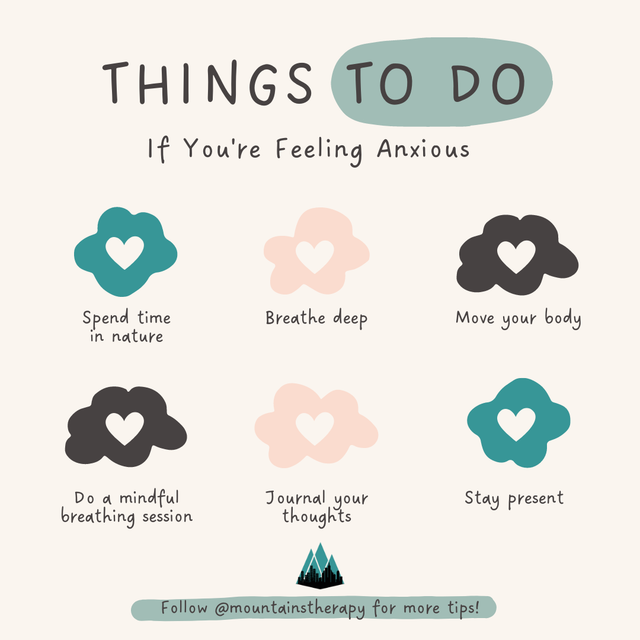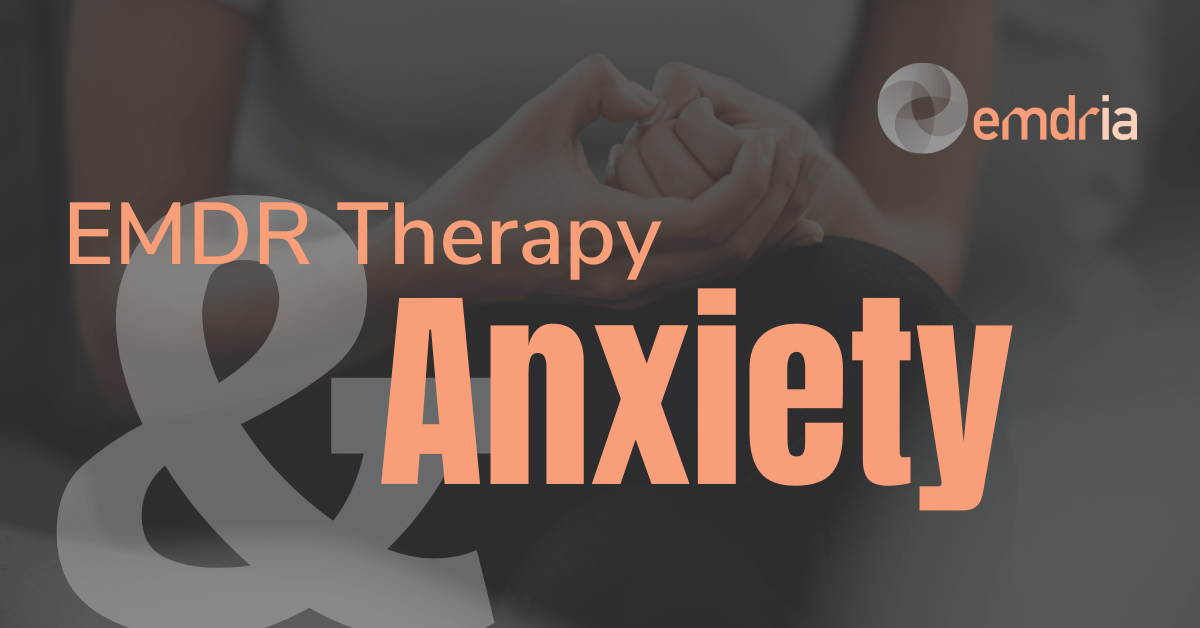Find balance and focus with reputable counseling services for anxiety
Wiki Article
Discovering Different Approaches in Therapy for Anxiety Disorder for Lasting Adjustment
When taking on anxiousness conditions, it's vital to explore a selection of counseling strategies. Each technique offers unique insights and devices to assist you handle your symptoms efficiently. You might locate that combining methods can produce the best outcomes. Nonetheless, comprehending the subtleties of these techniques is key to fostering enduring adjustment. Suppose the right combination could release a brand-new level of psychological health for you?Understanding Anxiety Disorders: A Quick Review
Anxiousness conditions, which affect countless individuals worldwide, can significantly impact every day life. You may experience frustrating feelings of worry or stress that appear unmanageable. These feelings can bring about physical symptoms like an auto racing heart, sweating, and even wooziness. Common kinds of stress and anxiety conditions consist of generalised stress and anxiety problem, panic disorder, and social anxiety disorder. Each has distinct indications, however they all share a propensity to disrupt your regular and relationships.Understanding the root creates of your anxiousness is crucial. It could come from genes, brain chemistry, or life experiences. Recognizing your triggers can help you manage your reactions better. It is very important to remember that you're not the only one in this battle. Many individuals encounter comparable difficulties, and seeking help is a solid action toward feeling much better. By finding out about anxiousness conditions, you're currently on the path to understanding and managing your problem much more properly.Cognitive-Behavioral Treatment: Challenging Adverse Thought Patterns
In Cognitive-Behavioral Therapy, you'll begin by determining the negative thought sets off that add to your anxiety. Counseling services for anxiety. Once you identify these ideas, you'll work with replacing them with even more favorable alternatives. Together, you'll construct efficient coping approaches to help manage your anxiousness in everyday scenarios
Determining Adverse Thought Triggers
When you come across minutes of distress, recognizing the certain triggers behind your adverse ideas can be essential in taking care of anxiousness. Begin by paying attention to circumstances that provoke feelings of concern or worry. Is it a congested room, a forthcoming due date, or a conversation with certain individuals? Write down these circumstances in a journal. This will certainly help you determine patterns in your thinking. Notice physical experiences that accompany your adverse thoughts, like a racing heart or rigidity in your breast. By identifying these triggers, you gain understanding into what's fueling your anxiousness. Understanding these links is the primary step in testing those ideas and inevitably restoring control over your psychological actions.Changing Ideas With Positives
Testing unfavorable idea patterns is an essential action in transforming your frame of mind and reducing anxiousness. You may often locate on your own caught in cycles of insecurity or catastrophic thinking. Rather than letting these thoughts determine your sensations, technique changing them with sensible alternatives or favorable affirmations. When you assume, "I can't handle this," change it to, "I can handle obstacles one action at a time." This basic modification can greatly influence your mood. Routinely identifying and responding to these negative ideas helps produce a much healthier inner discussion. Remember, it requires time and effort, but regularly exercising this method can bring about lasting modification, equipping you to encounter anxiousness with restored self-confidence and strength.Building Coping Methods Together

Mindfulness and Acceptance-Based Approaches: Growing Present-Moment Understanding
As you navigate the complexities of anxiousness, including mindfulness and acceptance-based techniques can considerably improve your capacity to cultivate present-moment recognition. By concentrating on the right here and currently, you'll discover that you can observe your thoughts and sensations without judgment. This practice helps you acknowledge your anxiety without really feeling overwhelmed by it.Engaging in mindfulness exercises, such as deep breathing, body scans, or guided meditations, permits you to ground yourself in your present experience. Acceptance-based strategies encourage you to welcome your feelings instead than fight against them. When you accept your feelings, they lose their power over you.Incorporating these techniques right into your day-to-day routine can transform how you react to anxiousness. You'll create strength and learn to browse stressful situations with higher ease. Ultimately, cultivating present-moment awareness lays the foundation for enduring change, equipping you to lead a much more meeting life.Direct Exposure Therapy: Challenging Worries Gradually
Exposure treatment assists you confront this content your worries in a gradual method, making it much less overwhelming. You'll find out methods to encounter anxiety-provoking situations action by step, while likewise developing coping techniques to manage your responses (Counseling services for anxiety). This method equips you to take control and decrease anxiousness graduallyGradual Direct Exposure Methods
When dealing with anxiousness, progressively challenging your worries can be an effective method to regain control. This strategy, referred to as gradual exposure, includes slowly exposing on your own to the circumstances or objects that trigger your anxiety. Begin with much less challenging circumstances and slowly function your way as much as more tough ones. If you're afraid of public speaking, you could start by talking in front of a mirror, after that progress to sharing thoughts with a pal, and at some point address a small group. Each action helps desensitize you to the concern, constructing your self-confidence gradually. Bear in mind, it's vital to pace on your own and commemorate small success as you move via this procedure, strengthening your capacity to handle anxiousness effectively.Building Coping Techniques
Building effective coping approaches is crucial for managing anxiousness, specifically as you challenge your fears progressively. One powerful method is exposure treatment, where you start by facing your worries in a controlled manner. Begin with less frightening scenarios and gradually work your method up to even more difficult scenarios. This steady exposure assists desensitize you to anxiousness causes, making them less overwhelming.Incorporate relaxation methods, such as deep breathing or mindfulness, to soothe your mind during direct exposure. Track your development, celebrating tiny victories along the way to increase your confidence. Bear in mind, it's okay to take your time; the objective isn't perfection but steady renovation. By developing these methods, you'll encourage on your own to browse anxiety and embrace life extra fully.Psychodynamic Therapy: Discovering Root Reasons of Anxiousness
Psychodynamic treatment explores the subconscious mind, disclosing the root causes of your anxiousness. By examining your thoughts, sensations, and past experiences, this technique aids you reveal underlying conflicts and unsettled concerns that might add to your present anxiety. You'll deal with a therapist to explore childhood experiences, partnerships, and psychological patterns that shape your reactions today.As you obtain insight into these much deeper layers of your mind, you'll start to identify how past events influence your present actions. This understanding can lead to catharsis, allowing you to process feelings you may have suppressed.Through the restorative relationship, you can additionally identify protection mechanisms that might have developed with time, providing a more clear path to transform. Eventually, psychodynamic treatment equips you with the devices to resolve your anxiousness at its core, advertising lasting change in your psychological wellness.Integrative and Holistic Techniques: Integrating Methods for Greater Effectiveness
Incorporating various restorative strategies can enhance your journey towards taking care of anxiety better (Counseling services for anxiety). By integrating aspects from cognitive-behavioral therapy, mindfulness techniques, and holistic approaches, you can produce an individualized approach that resolves your unique requirements. You may utilize cognitive-behavioral techniques to challenge unfavorable idea patterns while incorporating mindfulness exercises to ground yourself in the existing moment.Additionally, discovering holistic techniques such as yoga exercise or meditation can promote relaxation and minimize stress and anxiety signs. This blend allows you to create higher self-awareness and resilience.Experimenting with these varied approaches can assist you discover what resonates most with you. Remember, it has to do with locating a harmony that works, instead than adhering to a solitary strategy. This integrative technique not only uses instant alleviation yet additionally fosters lasting abilities for taking care of stress and anxiety, encouraging you to recover control over your life
The Role of Assistance Solutions: Building Durability Via Link
While it may appear that handling stress and anxiety is a solitary journey, having a solid assistance system can play a necessary role in your durability. Bordering yourself with compassionate good friends, household, or support system produces a secure area where you can honestly share your sensations and experiences. When you get in touch with others, you remind on your own that you're not alone in this struggle.These relationships provide inspiration and can provide practical coping strategies that have worked for others. It's additionally an opportunity to gain perspective; good friends can aid you see scenarios in a different way, reducing feelings of isolation.Moreover, psychological assistance cultivates a sense of belonging, which can greatly relieve stress and anxiety signs and symptoms. By leaning on your support system, you can construct durability and deal with obstacles much more effectively. Keep in mind, getting to out for assistance signifies strength, and it can make all the distinction in your trip toward taking care of anxiety.Often Asked Questions

What Are the Common Symptoms of Anxiety Disorders?
You might experience uneasyness, fatigue, trouble focusing, impatience, muscular tissue stress, and rest disruptions. Physical symptoms can include rapid heartbeat, sweating, and trembling. Recognizing these signs early can aid you look for ideal support and treatment.Just How Lengthy Does Therapy Usually Last for Stress And Anxiety Disorders?
Therapy for anxiousness conditions commonly lasts anywhere from a few weeks to a number of months. It actually relies on your private requirements, progression, and the techniques your therapist uses to help you handle your anxiousness efficiently.Can Medicine Be Utilized Alongside Therapy for Anxiety?
Yes, medication can absolutely be utilized along with treatment for anxiety. Incorporating both methods commonly improves therapy performance, aiding you take care of signs while exploring underlying issues via counseling. Constantly consult your doctor for tailored suggestions.Exist Self-Help Techniques for Taking Care Of Stress And Anxiety?
Yes, there are a number of self-help techniques for handling anxiety. You can exercise mindfulness, take part in normal exercise, keep a balanced diet regimen, develop a routine, and use deep breathing techniques to aid reduce stress and anxiety signs successfully.Exactly how Do I Know if I Need Professional Aid for Stress And Anxiety?
You ought to consider looking for professional assistance for stress and anxiety if it interrupts every day life, triggers significant distress, or if self-help approaches aren't working. Count on your instincts; connecting can cause much better coping abilities and support. Typical types of anxiousness conditions include generalised stress and anxiety problem, panic problem, and social stress and anxiety problem. When you come across minutes of distress, acknowledging the particular triggers behind your adverse ideas can be crucial in handling stress and anxiety. Replacing adverse thoughts is just the beginning of managing anxiety successfully. By examining your thoughts, sensations, and past experiences, this strategy helps you discover underlying conflicts and unsolved issues that might contribute to your present anxiety. It's additionally a possibility to acquire viewpoint; good friends can help you see scenarios differently, minimizing feelings of isolation.Moreover, psychological support cultivates a feeling of belonging, which can considerably reduce stress and anxiety symptoms.Report this wiki page